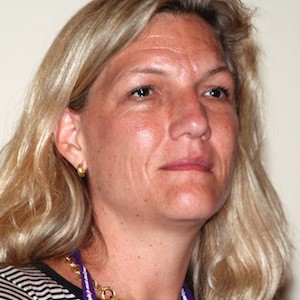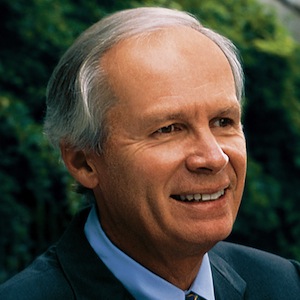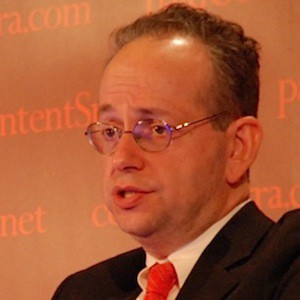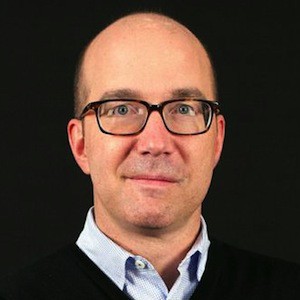Deborah: I was always a voracious reader and I loved in particular
the in particular magazines. When I was
in college I was buddies with one of the librarians. Like me, she
was from a working-class family. I think that’s how we became
friends. I was working at the library and got to know her and
really liked her.
I was at her apartment whining about my future and she said
“You can do something to get a job at a magazine or you can just
talk about it and then end up working at the Postal Service like my
sister does.”
Deborah: I was an avid reader of “Mother Jones Magazine” and they
alluded to having an intern. I applied for an internship it was for
the summer before my senior year. Actually, I did graduate a little
bit early January the following year. It would have been the summer
of 1978.
I became an intern at Mother Jones magazine and they offered
me in the following October, they offered me the job of fact
checker which started in January because I was graduating early.
That’s
how I got into journalism. Actually, I got into journalism from a
perspective that made me utterly cynical and suspicious of writers
and writing.
I did things like, this was pre-personal computer error. I
would do things like I have to cut out chunks of charts that a
writer have submitted and reorder it.
I was so bitter because some writer won an award for some
article where the whole factual boxing was completely wrong. I
have to reorder it. I was always like… writers. I didn’t come from a
reporting background.
I have like a single summer class in journalism. I was
dealing with people who did not had a rigorous education and what
it meant to be a solid reporter. I do think it really served me
well in the sense of, I’m still fairly gullible.
I can give you examples of that later. I got into that way.
I decided very wrongly to become a freelancer. For me, my freelance
after three and a half years at Mother Jones and helping actually
organize a union to represent the workers there.
I was making so much money there. They were paying me a
thousand
dollars a month. It’s the more money that I could’ve ever imagined.
It was all hippie, right? It was like, there was three levels of
payment and no one made more than three times of what
I made.
It was like boom times. I was super excited living alone for
my first time. Anyway, I decided to become a freelancer because
after three and a half years, I was bored. As being a fact checker,
I’ve been told that because the previous fact checker has been
promoted to managing editor.
It didn’t work out. Fact checkers would never ever get
promoted, which I thought that was just wonderful. Anyway, my career
as a freelancer lasted about a year. It consisted of me spending
money I didn’t have to
to go to North Beach, drink lattes, buy a
fresh copy of the new “New York Times” and read it. That was pretty
much it. I wrote maybe four stories the whole year.
My husband came to join me because he was Swedish and we’re
apart for a while. He joined me and we got a house mate. She was a
former intern for Mother Jones, whom I adored. She was working at
InfoWorld.
She said, “They need a copy editor.” I’m like, I’ve taken a
copy editing class. I was like how did you know? And she said Stewart
Alsop — who you know went on to become a well-known venture capitalist
— said “I wasn’t very good so I’m pretty sure they’d be happy to have
you.” I went there and took a test. They hired me.
InfoWorld was great, because after I’ve been at this non-
profit place, where I really supported the journalism that was
being done, but the internal politics were weird. I was working my
ass, but I would never get promoted.
In InfoWorld, I went from being on the copy desk to being a
Chief Copy Editor really quickly, to being a News Editor, to being
Assistant Managing Editor, to whatever the hell I was when I left.
They rewarded you, if you did well. I really didn’t care
thatthey were money-grabbing-what-have-you, because if I worked
well, they’d give me a promotion and give me more responsibility.
I remember saying…At first, I was fighting (against)
becoming) the
Copy Desk Chief. I was like, “I can’t spell.” They’re like, “It
doesn’t matter. Here, here’s a dictionary. You have to understand
mostly it’s about making a decision and sticking to it. You’ll be
fine.” It was exciting.
Did John (Markoff) tell you about the day he resigned from
InfoWorld?
John: No, he did not. Can you tell us?
Deborah: OK. This is a highly entertaining story given that John
Markoff and Stewart Alsop both went on in different ways to become
Silicon Valley famous people. I knew John almost not at all because
I had fact checked an article he had written from other jobs.
I started and said hi to him. I hadn’t even been there a
month. We were at this big staff meeting. Stewart was also leading
it, of course, because he was the editor.
In a long conference table, all the reporters and everybody
were around it. John Markoff and Michael Swaine, who went on to be
at Doctor Dobbs, and is a wonderful person, they walked in and they
slide their letters of resignation all the way down the conference
table towards Stewart, the two of them, and announced that they’re
leaving.
Deborah: Yeah, yeah, yeah. That was festive. Really, I didn’t get to
know John until much later, when he was based up with The New York
Times. I don’t know him well, but I worked with Steven Levy as his
editor at Macworld. I sort of knew John through Steven.
I was at InfoWorld probably for another three and a half
years. This was this short-lived weekly called, badly, Macintosh
Today, which abruptly got the plug pulled on it.
John: Who owned that at that time?
Deborah: It was an IDG publication. It was in the same building as
Macworld. David Bunnell had started PC World at his kitchen table
with his wife. David’s a delightful person, but there’s a way in
which lucky amateurs think that they’re professionals, only they’re
not.
Our wonderful editor-in-chief, Maggie Cannon said, “I am
going on my long-awaited trip to France. I’m not going if
anything’s going to happen.” They’re like, “No, no, nothing’s
going…” She left, and then the word came down they were closing
the magazine. I was the managing editor so I had to tell
everybody. David chose not to do that. He chose to give that job to
me.
I was unemployed for all of three weeks and I became
the head of departments. I edited columns and had a couple of
people who reported to me. Then worked with Jerry Burrell, who was
editor-in-chief, and then worked with Adrian Mello and had
columnists like Steven who was absolutely our best columnist. He
wrote the
first thing ever about the World Wide Web, back when it was only
Mozilla. Steven is so professional and just was a delight to work with
as an editor in every way.
I did that, and then, after a while I really wanted to
become a freelancer, so I did after I’d been there for six and a
half years. I had a column while I was at Macworld. It was called
“Conspicuous Consumer,” where I shamed Apple because they had a
crappy warranty. It was like 90 days or something. Eventually, they
changed it.
I worked for various publications, and then Steven said,
“Hey, do you want to help me at Newsweek a little bit?” I was
like, “Yeah, totally.”
I started doing some reporting and actually writing for
Newsweek. I had a brief gig with Fortune.com writing a “Valley
Talk” column, which was the best gig ever because I could write
about anything I wanted to, as long as it had something to do with
Silicon Valley. It was super fun.
I did some stuff for Circuits for The New York Times.
The best part about that was the one about telephone etiquette
because I did that thing about voicemail versus blah, blah, blah,
and I got to call up Miss Manners and beg her for an interview,
and talk to her about that. That was the highlight of my New York
Times experience because I was such a big Judith Martin fan.
I wrote a feature for “Reader’s Digest” and a few other
things. Basically, it’s mostly been tech stuff.
John: It was opportunistic. As you describe it, it wasn’t some
innate fascination. You didn’t code. You didn’t do anything like
that. It was opportunistic. There were jobs there.
Deborah: I was totally opportunistic because we’re on the West Cost.
There is nothing being published here. Papers? Newspapers, and
tech, that was it.
When Steven wisely left “Macworld” for Newsweek, and I had
an opportunity to follow him, I was very clear. It as super clear
to me that here’s a window of opportunity. Pretty soon technology
is going to be every other thing covered in the newspaper. It’s not
going to take special expertise to cover technology because
technology is going to be baked into everything.”
Right now, for this split second, I have expertise that
people think is worth something. Shortly after this it’s going to
be automatically assumed that everyone who does any sort of writing
knows about this stuff already.
That’s how I saw it. I saw, “OK, here’s this opportunity.
Walk through this door now because it’s going to slam shut pretty
quickly.”
John: That’s fascinating because if you think back, the place you
started at Macworld and the others, there was a small cadre of
journalists covering it. Now it’s like an army of people covering
it.
That’s stunning. Did you ever expect that sort of army?
It’s getting to be more people covering tech in some newspapers
than covering sports.
Deborah: I don’t think I foresaw that. I am not good at the crystal
ball business, but I did understand that tech was going to be baked
into everything.
I would say that there are more people covering tech than
ever but, also, they’re freaking interchangeable. It’s not like you
have to search high and low for someone who can cover this esoteric
area, unless you’re talking about esoteric things, and those exist.
In general, the Internet, when I was still working at
Macworld, it wasn’t really a thing yet. It was just starting to be
a thing. When I started working at “Macintosh Today” I remember
going home to my husband one day and saying, “Honey, if we just buy
a Mac SE I promise I will never want another computer the rest of
my life,” and I’ve had about 47 since then.
I was so naïve. I was really naïve. I think one of the
things that I did not understand actually until I started working
at Newsweek, because I was doing trade press. One of the things
about the trade press, the trade press often has its guts knocked for
there’s no separation of church and state.
That’s probably true now given that Time agazine just
announced that there’s no longer any separation of church and
state. No longer any separation between business and editorial
because it’s all in service of blah, blah, bullshit. At MacWorld
because it was owned by Pat McGovern and he was a quirky guy who
had made money in the tech industry and who was quite ethical.
I wrote this monthly column and regularly pissed off people
in addition to doing my editorial stuff. He had this thing where
every 10 years he would take people out to a swanky dinner, a
variety of employees. I showed up there early which was a nightmare
because I did not know how to talk to him at all. Our small talk
was about the trip he’d recently taken to Antarctica with his wife.
Not a great meeting of the minds. Nevertheless, he was a
sweet guy. While I’m waiting he says, “You know, Steve Case, who was
then the founder and head of America Online AOL, called to complain
about your column one time.” And I’m like, “He did?” And he’s like,
“Yes.”
I said, “Why and what did you tell him?” He said, “He was
unhappy with the way that you were characterizing AOL.” I told him
that we did not interfere with our editorial staff. That doesn’t
happen nearly often enough but it happened there. That made me
really happy to work there.
I was protected because I was trade press. Vendors were
coming in, Apple was coming in and they were always showing their
products all the time. It was really clear what our job was. Our
job was to review products and help people use them.
I go to Newsweek, Newsweek is great. Newsweek treats me as
a professional and I’m not actually obligated to be objective. In
this way. It wasn’t a political thing. I wrote a piece about
software for babies. That’s a stupid idea. Babies have not evolved
to use software. It’s a dumb idea on the face of it.
I set out to cover this for a special family tech issue
because they did special tech issues. Totally pissed off the
company because I talked to their hired psychologist for two hours
and chose to use the quote in which she conceded that in an ideal
world babies would probably not use software. This is not verbatim.
The company called and they complained and she was upset
and I stand by the story. Newsweek was totally great about that.
One of the things that I loved about Newsweek and about other
places, you’re old enough, you remember the PBS News Hour when it
used to be McNeil/Lehrer report?
John: Yes, it was.
Deborah: OK. One of the things that I’ve always hated about the
mainstream media is this wrongheaded insistence that pretending to
be, because I don’t think anyone actually is, pretending to be
objective is a service to the readers.
If they had had the McNeil-Lehrer Report during World War
II, you just know that Jim and whatever-his-name-is, they’d be
like, “So, Herr Hitler, you hear the Jews are claiming that blah,
blah, blah. What’s your response?” Now, how is that helpful?
Anyway.
I think I’ve been less horrified by the demise of the
mainstream media due to Internet influence than a lot of
journalists have been, because I bumped up with a lot of
journalists who were just as arrogant and just as much of a pain in
the ass and just as much thinking that they were masters of the
universe as all the annoying entrepreneurs I used to have to deal
with when I was working at Newsweek.
John: Was that true back then? Because some people say to me, “In
the ’80s, covering tech was more camaraderie than competition.”
Deborah: I think that there was. It’s not that I felt competitive
toward other journalists. Remember, I wasn’t working where…I’m so
lucky. I was never in a working environment where I was working for
scoops. I was never, ever, ever in that position. There were fewer
journalists. I think there was more camaraderie.
I know much later I helped out a British Financial Times
reporter by giving her a tape of an interview that she didn’t have
and then she stiffed me. She refused to return it. She just didn’t
return it when I was totally saving her ass. Normally I didn’t have
that happen to me. Normally it wasn’t an issue.
John: Good.
Deborah: That was later. That was when Gil (Amelio) was
at Apple, just before Steve came back.
John: Yeah, after. It’s fascinating, because if you ask the
journalists themselves, they don’t feel too arrogant. If you ask
anyone on any copy desk anywhere dealing with reporters, there’s a
hierarchy.
Deborah: Oh, yeah. There’s totally a hierarchy. There’s a hierarchy
everywhere. Ultimately, sorry to break the news to you, it’s high
school. It’s high school, sadly. I think that there are a lot of
really smart, really good reporters out there. The whole tragedy
about…First off, I should say I love the Internet. I love the
development of all of this information that’s now available to us.
I was one of the earliest mainstream journalists to have a
blog. It was a PR and media criticism blog called “Buzz” that was
hosted by Dave Winer. I don’t know if you know Dave Winer.
John: I’ve read of him. I do not know him.
Deborah: Dave Winer is this guy who, he’s a famous software
developer in the Valley who purports to be the very first blogger.
There is some disagreement about this. I do not have a position.
But Dave was very generous. I was reading his blog. I was reading a
blog by a guy named Doc Searls, because he and several co-authors
had written this wonderful book called “Cluetrain, Beyond Business
as Usual,” which I thought was wonderful.
I was working for a magazine called Upside which David
Bunnell happened to be running at that time, which no longer
exists. It was in the days where people had money for ads. It was
fat and happy with tech ads. I went to Adrian, with whom I’d worked
in Macworld, and said, “Let’s start doing book excerpts, because
it’s a cheap way of filling pages.” He’s like, “Sure.” That’s how I
got to know Doc. Anyway.
Their blogs were great. I was so excited about blogs, so I
started one. The freedom as a writer to basically write what you
want, and then to get the immediate feedback from people, the
comments and stuff, was incredible. It felt like this little
community. That really felt like a community. I wrote the first
article in Newsweek about blogging.
John: Yeah, you did.
Deborah: There was some criticism about it in the community, in that
blogging community. Somebody wrote, “When Newsweek covers your
trend, your trend is dead.” I wrote the guy, saying, “I’m sorry
that I didn’t cover every blah, blah, blah.” He was so super
embarrassed, because you know how people will say anything if they
don’t actually think they’re going to be called on it?
I didn’t mind about the criticism that wasn’t a problem.
But there were, even at that time, people, journalists and editors,
who were getting all miffy, like, “This is our territory.” They
could sense a pissing contest coming on and they really wanted to
win it.
John: Right. Because, let’s remember, you grew up, I grew up, in
an era that, you write something, and once in a while a snail mail
will get through the mail room and land on your desk.
Deborah: Right.
John: Going from that position of quote-unquote “authority” into
feeling that there’s a scrum was jarring at best.
Deborah: It was, because we were all protected and fortified. We
were just as institutional as, like, the industries we were
covering or the government or whomever. We had this comfy little
spot and all was right with the world because we knew our place in
it. Suddenly, there are these upstarts who are calling us out, who
can write their own stuff instead, who can complain instantly and
publicly when we get it wrong.
Yeah, early on it was really clear when I had my blog that
the establishment, as it were, was getting all antsy about this. I
had no idea that Craigslist was going to destroy advertising for
newspapers. I had no idea…Dave Winer told me this thing. I
refused to believe it. I refused to believe it because I could not
imagine the world. This is how bad I am.
We were at some event, and he said,”Deborah, some day
you’re going to do a search in ‘The New York Times,’ and you’re
going to get blog results as well as results from The New York
Times itself.” One day, several years later, I’m not making this
up, one of Dave Winer’s blog postings came up as part of the Google
search. But it was on TheNewYorkTimes.com.
He totally won that one. But I didn’t foresee it, and I
didn’t foresee it because to me, The New York Times, the paper of
record, although I still think “The Wall Street Journal” is better,
but that’s beside, meant that it was always going to be doing its
job mediating my experience as a reader, and the thing is, vetting
it, if you will. You don’t necessarily agree with the vetting
process, but it’s been vetted.
If Dave Winer’s blog posting or anybody else’s blog posting
comes up on nytimes.com, that has not been vetted. That has not
gotten The New York Times stamp of approval editorially, and yet
it’s on that page. To me, that was inconceivable, that would never
happen, because that was the whole point. The whole point of The
New York Times was that, hate them or love them, the editors were
there doing their job.
John: What else took you by surprise? You were not naive. You
were covering this industry. Did you see anything?
Deborah: It took me by surprise that people were so insular. It
shouldn’t be, but I went to things like…I remember this tedious
dinner party I had to go to for some event. The guy sitting next to
me was some successful serial entrepreneur who was telling me in
all seriousness about how Silicon Valley at this time, and this
time must have been, it was before the tech bust. It must have been
in 2000 or late ’90s.
In all seriousness, he explained to me how Silicon Valley
was like the modern equivalent of Florence. He believed that. I do
not believe that, but he believed that. Although, apart from the
Computer Science Museum, I do not see a lot of art and culture
resulting from the riches and whatever.
I have to say that I think I was naive. I had this idea
that people would be a little more self aware. Because I was always
being pitched by people who were completely convinced that their
latest widget deserved the front page of Newsweek, which is common.
In fact, I even had this exchange. The only time I met Steve Jobs,
I was doing reporting.
Steven was doing the story about the introduction of the
iMac. That was the very first one, the old CRTs with all the bright
colors. I was there talking to some product manager, and Steve
shows up. I’d never met him before, and it’s exactly like all the
stories about him. He had this total bubble, this bubble of
charisma.
I’d never been with anyone before who could take any
argument and turn it around. He was like, “This should be on the
cover.” I was like, “I’m really sorry, but it appears that there
may be,” and I’m not making this up, “…a potential cure for
cancer which appears to be going on the cover instead of this.” He
was like, “I can see that.”
I didn’t understand, actually, that the very things that I
embraced, blogging and online communication and stuff, was
basically going to destroy the industry that employed me, and that
pretty soon I was going to feel like a mid-level manager at the
buggy whip factory several years into the introduction of cars. I
just didn’t know that there wasn’t going to be anybody who would
value my services anymore.
John: You’re not alone among those who didn’t see it coming. Were
we covering too close? Not far enough away? We didn’t see the whole
picture? Is it one of perspective? We’ve all lived through this,
and yet there has to be…Why didn’t we see it?
Deborah: I have several theories about this. One is, humans have a
built-in status quo bias. It’s one of the reasons why people tend
to vote against their own interests when it comes to things like
health care, if it’s change, because what they know…
John: Is what they have.
Deborah: Is what they have now, and so a change…That’s part of it.
We had a status quo bias, so we believed…There’s science about
this. But I also think we were too close. There’s a way in which
once you’re in a role and you know the role…Because there are
many, many examples in many different industries where exactly the
same thing happened. This has not only happened to journalism.
It’s going on right now in the new company I’m in. It’s
gone on in lots of areas over all of history. But if you’re right
in the middle of it…It’s the people on the outside who can see
it.
John: But yet, journalism tries to predict, tries to offer, tries
to listen to us because we can predict what’s coming. We can
forecast. We will let you know. We can see around, or pretend you
can see around that.
Deborah: It does?
John: Some parts of it do. You disagree with that.
Deborah: I disagree with that and I will tell you that one of the
most troubling things for me. Now we have click-bait. We have all
these websites with click-bait. I’ll tell you that the people who
started…the late lamented Al, whatever his name was, and whoever
started “People.” I do not believe in hell, those people are going
to hell.
Here’s why they’re going to hell, because we’ve had a race
to the bottom because journalism needs money and because tech
people need, you know the myth, “Information wants to be free.”
My time isn’t free. My apartment isn’t free. I have to pay
for everything, so if I’m going to be a reporter or an editor, I
actually need a sustainable way of doing that.
There’s this Silicon Valley ideal of somehow information
wants to be free and we’ll all use bloggers and whomever.
Meanwhile, there’s this problem that people have to make money.
Human beings are wired to create novelty and all sorts of
fake, salacious stuff, so the things in an ideal world that I think
people need to know, they’re things that we want to know. No
problem finding out that stuff. But the things that we need to know
in order to function well both as human beings and as a society,
those are actually things that journalism and publishing can
provide, but they can’t provide it for free.
Right now, nobody wants to pay for it. In the old days,
that was OK, because we had advertisers and they covered the costs
of both the stuff people wanted to read and the stuff people should
read, so you got your vitamin pill. Sometimes that made a
difference.
There’s been tons of investigative journalism and other
forms of…like Jane Brody for example, excellent service
journalism, but we got to the point where we don’t want to pay for
it. We got used to things being for free, and we end up in a click-
baity world where now even what used to be good websites have
devolved into collections of click-baity, short, sweet, listen
stuff.
What I’m saying is nothing new. I’m using the longest
possible way to say I’m not convinced that…I haven’t gone back to
Ben Franklin, I’m not a historian when it comes to journalism, but
I’ve never liked talking heads and pundits.
One of the things that has so distressed me about what has
happened is that people do not understand the difference between
actual journalism and punditry. They haven’t understood it for
years.
The confusion has only gotten worse, so when you talk about
journalism can predict the future,mmmm maybe. There were certainly
people, journalists, who predicted the housing bust, for example,
long before it happened.
I knew it was coming. I sold my house here because I was
listening to the journalists and a bunch of other people weren’t,
so journalism can provide services. It can be good for society.
I have great faith that it will continue to provide that
service, but the shape it’s going to take, and how it’s going to
happen, and how we can do it in a sustainable way, I have no idea.
I didn’t see the bus coming and I don’t know what the salvation
will be, but people have been doing this stuff for a really long
time. It’s not going to stop.
John: Do you think readers will become more discerning or
smarter?
Deborah: I think readers are discerning and smart. I actually think
the people who aren’t discerning and aren’t smart are the outliers.
John: Who are the outliers? Who do you mean by that?
Deborah: I mean hurried, uneducated people. It’s like the people who
are busy buying the 58 ounce Big Gulp and the candy bar for lunch.
There are people who do that. There aren’t as many of them as we
like to think.
I think there’s a way in which journalists, like
politicians, have often operated in a bubble. My disappointments
about journalism is that, like many places, there aren’t a lot of
people. It hasn’t been as diverse as it should, not as many people
of color, not as many people who grew up working-class or poor, so
I think it’s been a fairly elitist institution in some ways.
In that way, it hasn’t always served its readers and has
tended to look at them as other, like not discerning and not
whatever. I’m not so sure that’s true. It could be true.
John: Do you think that bubble you describe came to exist around
Silicon Valley and tech as well, just the accumulation of wealth
from there, the accumulation of influence?
Deborah: In terms of reporting, no. I don’t think so. I was able to
do the work I did because I was out here, because when I went to
“Newsweek,” virtually everybody there was from an Ivy League
university. I’m not from an Ivy League university. I could get in
this way, through tech. I doubt very much I would have been able at
that time to come in through the front door.
No, I think in terms of tech coverage, it was very
egalitarian for the most part.
John: Were there any inflection points that you saw in the past
25 years, where things changed, whether you’re talking about the
Mac, whether you’re talking about AOL buying Time-Warner, whether
you’re talking about the Internet. Someone even mentioned 9/11 as
being a inflection point, because suddenly everyone started looking
at their desktop for news.
Deborah: I’m like this small-scale thinker and not a big-scale
thinker. The inflection point, I think about the development of
publications like “Fast Company” and “The Industry Standard.” The
reason why I think of those as inflection points is because that’s
when we stopped being journalists and started being cheerleaders.
I had this conversation once. Katie Hafner…
John: Yes, I know Katie.
Deborah: Katie was teaching a graduate journalism class at Cal and she
had…my gosh, I can’t remember him by his name. John…
John: Koten?
Deborah: No, different John. He was one of the founders of The
Industry Standard and The Industry Standard had just folded or
something. I didn’t realize who he was. {John Battelle}
I didn’t know who he was and I had written a piece for The
Industry
Standard. I made some smart-ass crack about The Industry Standard
and all the graduate students were like, “Ooh,” and then I realized
who it is.
Katie’s like, “If you only had a single piece of advice for
journalism students, what would it be?” I said, “It would be people
lie to you and you need to remember that.” John was all, “But I
don’t think that’s true.”
I’m, “John, I wrote a feature for your publication and it
was about the development of smart chips on cards and the Visa
person I quoted claimed that they did X for Y reason.”
I was on deadline. I didn’t find out until later that Visa
had actually testified before Congress that in fact, they had done
it due to competitive pressures and it was actually blah, blah,
blah.
The inflection point, technology companies and corporations
were filling those pages with ads. Those magazines became
cheerleaders. “InfoWorld,” a dull, boring trade magazine, it wasn’t
a cheerleader, though, for any of the companies. What was The
Industry Standard, what is Fast Company?
They’re not like “Business Week,” although Business Week
may have become more of a cheerleading publication, but they’re all
about the cult of entrepreneurial energy, Silicon Valley, the value
of you as a human being, being based on your contributions in terms
of your groovy, fabulous, trendy startup whatever.
It’s bullshit mostly. There’s no place in there where you
find real reporting about the fact that technology isn’t clean,
it’s polluting Silicon Valley. About the workers and how they
suffer, about the fact that video game people had to file a
lawsuit, because they’re basically being forced to work 70 hours a
week or something.
For me, the inflection point was when the purported
journalists stopped being journalists and started being
cheerleaders. It may have happened earlier, but every time I read
Fast Company, I needed to go take a shower afterward.
Deborah: I have to say, does that mean I was too good to write
for them. I know I’m sure I would have written for them if they had
called me and given me a gig.
I just want to say when I was still in college and I had an
internship with the “Lodi Life and Times,” a weekly newspaper, and
got sent off by the managing editor to cover spring fashion and
wrote copy about the local department store skirting the issue with
frilly spring dresses, et cetera, it’s not that different, If Fast
Company had called me up and said, “Do an article for us,” I
probably would have said yes.
It’s not that I’m so much better, but I do feel like there
were lots of things we didn’t see, partly because we’d stopped
being reporters and really had become cheerleaders, not in all
cases, but in many cases.
John: Someone said to me they think it was the attractions of
wealth.
Deborah: Oh, my God, yes! I remember, all of us were so jealous. A
bunch of us at “Macworld” were totally jealous because we
discovered that somebody who’d been a copy editor for Google or for
some different company had become a millionaire, and it was like,
“How do reporters become millionaires?” They don’t. “How do copy
editors become millionaires?” They don’t.
The wealth is very seductive, although nobody was being
paid off as far as I know, but Mike Wallace played tennis with the
White House people, right?
John: Others have said, they think that technology reporting has
become in a way like political reporting in that both are suffering
from being seen as “access central.” You’re covering people of
influence, so I want to rub up against them and you lost that
distance.
Deborah: I think that’s absolutely true. Stone…what was his name?
John: I.F.?
Deborah: I.F. Stone, right. It’s absolutely about access, Steven had
access to Steve Jobs, Bill Gates, and all these people. One of the
difficulties for journalists, including in tech, is a lot of times
we feel forced to take someone’s word for something. That’s not
actually good enough, but we do it.
Because we want to get the word first, we cozy up with
people, often the heads of the company if we possibly can and
that’s how they court favor with us.
The fact is, they don’t need to do that any more. Now it’s
super easy for all these companies to speak directly to their
customers and potential customers and they don’t need to be nice to
journalists any more.
I’m now a marketing director busy trying to route around
journalists, because a lot of times they’re inconvenient.
John: That’s one of the realities of social networking. I can
disintermediate journalists. I can bypass them. So that’s that.
Deborah: Inflection points. Obviously the development of the
Macintosh was a big deal. Obviously, the development of the
Internet was a big deal. Craigslist, in retrospect, was a huge
deal. We just didn’t know it yet.
In fact, Craig Newmark went to one of my conferences. I
caught him before he was really way famous, and that was 2001 or
something. I just didn’t see it coming, but again, the cheerleading
instead of journalism, which I think continues to this day, and
always there’s been some of that. I think in terms of the business
press, there was this mania going on.
John: It was always thus, but it wasn’t everything and it became
much more than it ever was.
Deborah: Absolutely, at least that’s what I think. I understand that
people want to follow the trends, but seriously, Fast Company and
The Industry Standard, it was cheering you on, worshipping all
things tech, and Silicon Valley related.
John: Do you think we ever covered the anthropology of this? I
mean anthropology, in a way, how it all…what it was going to do
to us.
Deborah: I don’t think I’m in a position to do that. I think that’s
an outside job. I think we were too close and I personally feel
like I am still too close.
I did get an inkling. I think I mentioned to you that in
2000, I was interviewing for Newsweek. I was interviewing somebody
for a research firm, a first story, I don’t remember the story, but
the guy let me know very nicely that Newsweek would be dead by
2002.
I was like, “OK,” and he explained to me how the
advertising was going to drop. He was off by about 10 years, but he
very clearly, outsider, talked about the shift in terms of
advertising revenues.
It’s interesting “US News and World Report” survived
because they have their specialty on their Top 10 List and this
other stuff, and Newsweek did die. I reported back to the editors
and we all had a merry laugh about that.
We could laugh, because it didn’t die in 2002 or in 2003 or
in 2004, but it died. There were people who saw it coming, but not
the people in the industry because you don’t want to believe. We’re
wired to not want to believe bad news. Good luck, there may well
have been people who saw it coming, but I wasn’t one of them.
John: What about journalism? Are you optimistic about its future?
Are you jaded?
Deborah: I’m jaded and optimistic. I’m jaded because as previously
expressed people lie and people lie all the time and they lie in
all different industries, in all different areas, because it serves
them. They do that if you are trying to do your job as a
journalist because they’re trying to spin you, or as this happened
to me, basically lie outright.
That’s one of the reasons why it was so easy to become
cheerleaders, because if you’re a cheerleader, you don’t piss off
anyone. You can pat them on the back, you can encourage them. You
don’t have to ask any hard questions.
In fact, for Newsweek, I was at the press conference when
Gil Emilio, his first press conference, and the economy
columnist, I can’t remember his name, sent me there, so I asked him
one question. The one question was “How do you justify given
Apple’s current stock price the enormous salary that you’re
commanding?”
The PR person, the head of communications who was standing
next to him, turned all kinds of purple and attempted to go, “No!”
He’s like, “It’s OK. I can take this.” Then he talked about how it
was like the market blah, blah, blah.
I wasn’t there to be mean to him but I had a job to do. I
didn’t care. As far as I was concerned, he didn’t need to justify
his salary. Apple wanted to pay it, fine, but it was a hard
journalistic question.
The tech press, we don’t like to ask hard questions and
they don’t want us to ask hard questions, so usually we don’t. I
was an exception with some consumer columns I did, but usually,
that’s how it went, so I’m cynical.
John: Yet, you’re optimistic.
Deborah: I’m cynical because of the lying problem. I’m optimistic
because I think there are an incredible number of stories well
worth telling and investigative journalism or communication or
whatever we want to call it that can find an audience. But I do
believe that there’s no longer…The days of Life magazine have
been over for a really long time.
Broadcast journalism is more or less dead. We are being
sliced and diced, that’s good in some ways and it’s bad in some
ways. But, for me, what it means is, if I decide that I want to be
some sort of writer or some sort of journalist, I have every
confidence that I will find an audience and that I do not have to
own a printing press, in order to find that audience.
I don’t have to be Ben Franklin with my little printing
press. I am optimistic, because there is all kinds of journalism
going on now, but, it’s like small J journalism, and also, local
news sites that are becoming more important to people, because,
people are local and want to know what’s happening right here.
I don’t know what’s going to happen but I think there is
this incredible mechanism for reaching out to human beings in the
Internet. I have never known, because I have never been on the
official journalist credential train.
I didn’t go to J-school, I didn’t go to graduate school, I
am just toiling away, down here in the trenches. What has always
been most important to me is being very accurate and objective. To be
fair and accurate. I think, people can do that, and many more
people can do that now.
And, you don’t have to fight your way through, you can do
that if you are a person of color, you can do that if you are
working class or poor, you can do that if you are in a different
country?
You have potentially access to an enormous audience, so, am
I optimistic about corporate journalism? I hope, Time dies, it
ought to die. If it has a publisher now, that’s saying, “There is
no longer a law between editorial and advertising.” He doesn’t know
what journalism is, so, what they are doing now, isn’t journalism
anymore.
That’s fine. You can make that decision, but don’t call it
journalism, it’s not. Anyway, not optimistic about Time, optimistic
about journalism.
John: Thank you very much.
Deborah: Thank you.
Deborah: We forgot to ask about who is going to pay for it.
Deborah: I don’t know.
John: Who’s going to pay for it?
Deborah: Yeah. Well, I mean I think it’s a question worth asking.
Who’s going to pay for it? I do think that people have got to learn
to pay. I think the future of journalism is once again subscription
-based journalism. People pay for it up front.
John: Thus far, that hasn’t had great legs in this country.
Deborah: It hasn’t had great legs in this country but Sweden still
has that driving newspaper industry, tons and tons and tons. I
think people are paying 100 fucking dollars a month for cable plus
this plus that plus that. I think at some point they’re going to
go, you know, 25 bucks a month for really decent news that serves
me in this area, yeah, I’ll pay that. Maybe not a lot of people but
enough people.
John: All right. Knock on wood.
Deborah: Yeah.
John: Thank you Deb. Thank you, good chat.










